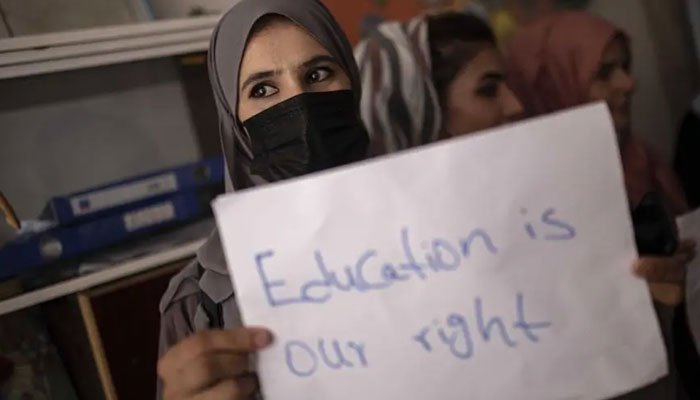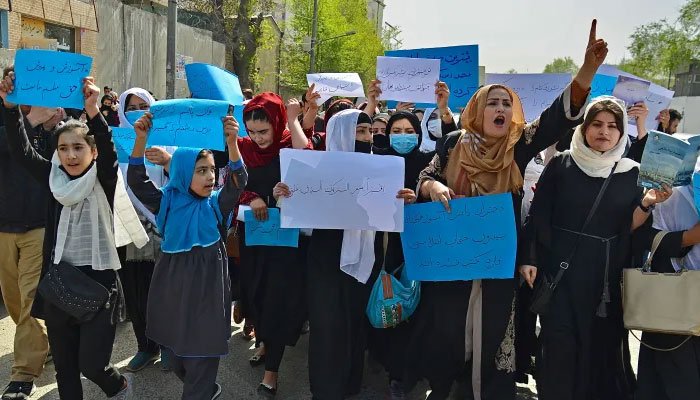Afghan Taliban Enforce New Law to Silence Poets! In a move that targets one of Afghanistan’s oldest cultural traditions, the Taliban regime has enacted a new law imposing severe restrictions on poets, effectively silencing critical voices and mandating praise for its leadership.
Women’s Education: The Dark Side of Taliban Rule discusses the extremist views, the misunderstood interpretation of Islam and the political connection in between.
The “Poetry Gathering Regulation Law,” signed by Taliban supreme leader Hibatullah Akhundzada, comprises 13 articles that dictate permissible themes and establish oversight committees to censor material.
What the New Law Bans

- Under the new regulations, poets are now prohibited from:
- Writing about love or friendships between boys and girls.
- Criticizing the Taliban’s supreme leader or Islamic rituals.
- Promoting ethnic divisions or what they deem “immoral customs.”
Erasing a Rich Heritage
The decree has been met with despair from Afghan writers, who warn it will erase the nation’s rich literary history.
“Poetry has always been the heart of Afghan culture,” said an Afghan poet in exile. “The Taliban want to strip it of humanity and turn it into political propaganda.”
A Kabul-based cultural analyst stated the measures mark “the end of free literary expression in Afghanistan,” reducing a vibrant art form to state-approved propaganda.
Overwhelming Majority of Afghans Oppose Taliban’s Education Bans, UN Reports

KABUL – A new United Nations survey reveals a stark divide between Taliban policies and Afghan public opinion, with over 90% of citizens opposing the regime’s ban on girls’ education.
The UN Women report, based on door-to-door surveys of over 2,000 Afghans, found consistent nationwide support for education regardless of gender or location.
Widespread Support for Education

The data shows near-universal support:
- 95% of men and women in urban areas support girls’ education.
- 95% of women and 87% of men in rural communities share this view.
UN officials called the findings “remarkable,” noting that nine out of ten Afghans reject the Taliban’s restrictions.
Devastating Human and Economic Cost
The report projects catastrophic consequences if the bans continue:
- A 25% increase in child marriage by 2026.
- A 45% rise in early teenage pregnancies.
- At least a 50% surge in maternal deaths.
- An economic cost exceeding $920 million between 2024 and 2026.
The restrictions have systematically dismantled women’s ability to work, learn, and imagine a future, creating what rights groups call “gender apartheid.”
Despite this, Afghan women continue to resist. “Women have not lost hope,” said a UN representative. “They are transforming their resilience into a conscious strategy against repression.”




